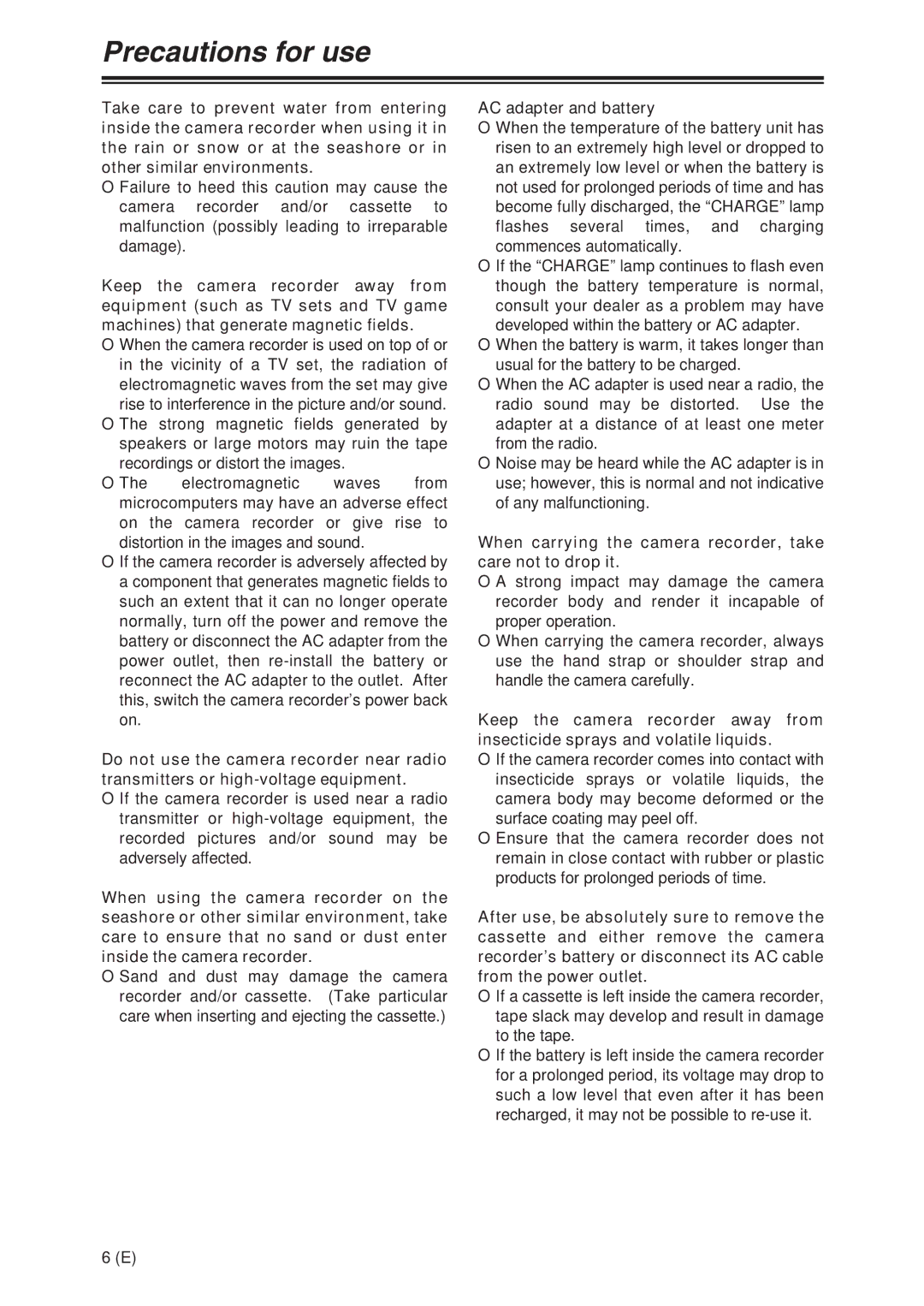Precautions for use
Take care to prevent water from entering inside the camera recorder when using it in the rain or snow or at the seashore or in other similar environments.
O Failure to heed this caution may cause the camera recorder and/or cassette to malfunction (possibly leading to irreparable damage).
Keep the camera recorder away from equipment (such as TV sets and TV game machines) that generate magnetic fields.
O When the camera recorder is used on top of or in the vicinity of a TV set, the radiation of electromagnetic waves from the set may give rise to interference in the picture and/or sound.
O The strong magnetic fields generated by speakers or large motors may ruin the tape recordings or distort the images.
O The electromagnetic waves from microcomputers may have an adverse effect on the camera recorder or give rise to distortion in the images and sound.
O If the camera recorder is adversely affected by a component that generates magnetic fields to such an extent that it can no longer operate normally, turn off the power and remove the battery or disconnect the AC adapter from the power outlet, then
Do not use the camera recorder near radio transmitters or
O If the camera recorder is used near a radio transmitter or
When using the camera recorder on the seashore or other similar environment, take care to ensure that no sand or dust enter inside the camera recorder.
O Sand and dust may damage the camera recorder and/or cassette. (Take particular care when inserting and ejecting the cassette.)
AC adapter and battery
O When the temperature of the battery unit has risen to an extremely high level or dropped to an extremely low level or when the battery is not used for prolonged periods of time and has become fully discharged, the “CHARGE” lamp flashes several times, and charging commences automatically.
O If the “CHARGE” lamp continues to flash even though the battery temperature is normal, consult your dealer as a problem may have developed within the battery or AC adapter.
O When the battery is warm, it takes longer than usual for the battery to be charged.
O When the AC adapter is used near a radio, the radio sound may be distorted. Use the adapter at a distance of at least one meter from the radio.
O Noise may be heard while the AC adapter is in use; however, this is normal and not indicative of any malfunctioning.
When carrying the camera recorder, take care not to drop it.
O A strong impact may damage the camera recorder body and render it incapable of proper operation.
O When carrying the camera recorder, always use the hand strap or shoulder strap and handle the camera carefully.
Keep the camera recorder away from insecticide sprays and volatile liquids.
O If the camera recorder comes into contact with insecticide sprays or volatile liquids, the camera body may become deformed or the surface coating may peel off.
O Ensure that the camera recorder does not remain in close contact with rubber or plastic products for prolonged periods of time.
After use, be absolutely sure to remove the cassette and either remove the camera recorder’s battery or disconnect its AC cable from the power outlet.
O If a cassette is left inside the camera recorder, tape slack may develop and result in damage to the tape.
O If the battery is left inside the camera recorder for a prolonged period, its voltage may drop to such a low level that even after it has been recharged, it may not be possible to
6 (E)
